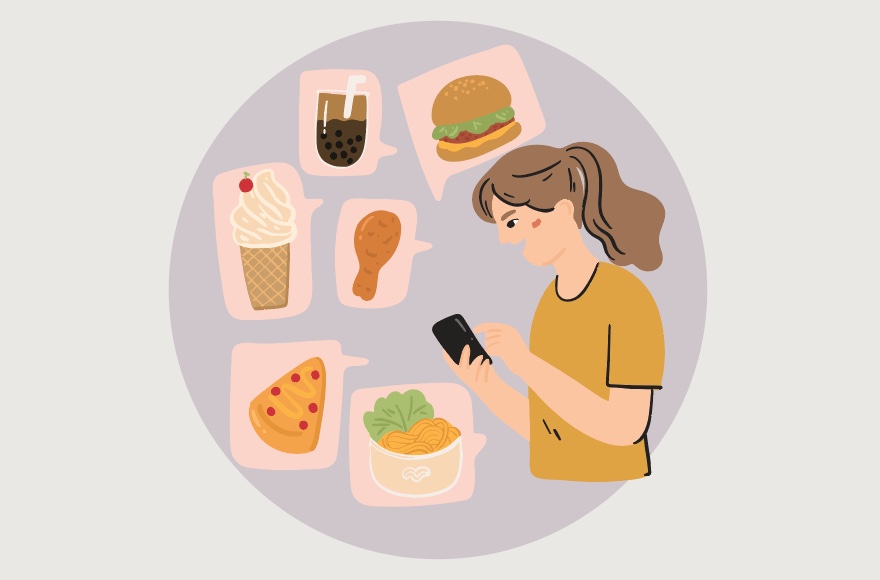Pioneering research has shed new light on what drives people’s basic food preferences, indicating our choices may be smarter than previously thought and influenced by the specific nutrients, as opposed to just calories, we need.
Today, more than yesterday, more and more individuals attach great importance to the development of healthy habits in their daily life. Between practicing regular physical activity and adapting your diet to a healthier and more ecological style, it is important to develop your nutritional intelligence.
Understanding what conditions our diet, or put another way, having nutritional intelligence will make our choice when we have a meal, much more genuine.
Although eating is a free act and in theory we have the will to eat well, do we really eat what we want? The answer is not easy. There are numerous factors which have an influence on our diet. From our dietary knowledge to our personal circumstances, including family experience, advertising, fashion, financial status or our weight. That is why we consider normal what we’ve experienced at home when it may really be excessive or unbalanced. We may decide to choose some food, not because it is the most appropriate but due to enticing advertisements. Perhaps we have vitamin deficiency because we are on a strict diet when we don’t even have obesity problems and so on.
Could our day-to-day cravings reflect the vitamins and minerals we are lacking? For example, do you crave liver, spinach or pumpkin seeds when you need iron?
Dr. Hana Patel is a Private GP and Mental Health Coach. Dr. Patel states that Public Health England (PHE) have devised the Eatwell guide, for people to refer to in a bid to stay at a healthy weight and includes advice regarding staying hydrated. The reason for this is that obesity and not eating a balanced diet, can us to become unwell and be more at risk for conditions such as heart disease and cancers. Following a healthy balanced diet, consisting of foods from each food group which lowers our risk of getting ill. Our bodies tell us when we are hungry, and we should trust our body’s signals to direct our food choices- which are specific to each person, as they depend on factors such as our cooking availability, what foods we have access to, our background and culture, the amount of money we have and our emotions and mood. These are examples of how we make decisions about what we eat at every meal. There are examples of when our bodies crave certain foods, for example in pregnancy, our body often needs more nutrients to help the developing baby, typically food that contain Vitamin D, iron and calcium.’
Dr. Rachel Taylor is a neuropsychologist, podcast host and founder of UNBroken.
Dr. Rachel believes ‘The body never tells us lies whereas the mind often does. Being able to connect with the body and understand its signals are fundamental in discovering and maintaining optimal wellbeing and health with our relationship with food being central to this.
Rather than relying on external cues and gimmicks where we outsource our bodily autonomy it is really important to start to ask our body what it needs on a regular basis. The majority of people understand the growls of hunger, but often eat so quickly and mindlessly that they do not feel when they are full or possibly starting to overeat.
Emotions are chemical messages and are so closely linked to how and what we eat that a good place to start when listening to what our bodies want is to start to become aware of the emotions that we feel before, during and after eating. Our bodies need to be energised and they need certain energy sources to work to the best of their ability and often what starts out as a wanted source of energy can become one that repulses us if we consume too much of it. The body is really good at keeping itself balanced, however the external environment is not good at supporting this by confusing people in what they need and what they want. We need to slow down and really start to listen to ourselves and not be persuaded by external factors to eat what our bodies do not need. There is an increasing amount of research that is showing that the microbiome in the gut is responsible for either inspiring craving or repulsion for certain foods which could lead to unique, novel approaches to therapeutics through the gut in the future. So the key points are that there is a need for people to start to ask the body what it needs, listen to it when it answers and start to be curious about their emotional world and food. In particular what it can tell them about how and what they are eating. The ability to be conscious about food consumption and they confidence to know what their body needs to be healthy can be a game changer in terms of wellbeing and quality of life.
We all need to be more connected with ourselves and take control of how we function within our environment in order to prevent unwellness and sickness, so taking time to start to ask, why do I feel like this? What does my body need? and What information does my body have for me will be a really good start.’
Dr. Hana Patel:
www.topdoctors.co.uk/doctor/hana-patel
Dr. Rachel Taylor:
UNBroken








